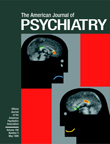Of all the curious phenomena associated with psychological trauma, none has caused more controversy than the issue of recovered memory. It seems to defy logic that people who have survived rape, combat, torture, or incest might not remember what happened to them. Common sense predicts that such horrible experiences would be indelibly engraved in memory, and for many survivors this is indeed the case. However, a century of clinical observation leaves no doubt that some traumatized people develop amnesia for the event and may not recall their experiences until months or even years later. How can we understand this?
Jennifer Freyd, a professor and researcher in cognitive psychology, proposes the theory that amnesia might be an adaptive response to trauma in circumstances where the victim is dependent on the perpetrator for survival. Other investigators have thought that amnesia might be correlated with some aspect of the trauma, such as the degree of violence, physical injury, or life threat. Freyd calls attention instead to the social context in which the trauma occurs. The relationship between victim and perpetrator is central to her theory. “In order to survive in cases of core betrayals (abuse by a trusted caregiver on a dependent victim) some amount of information blockage is likely to be required. The probability of amnesia is a function of the degree of betrayal” (p. 75).
In one of the most ingenious and original sections of the book, Freyd puts her hypothesis to the test by reanalyzing data from four recently published studies of adults with histories of childhood sexual abuse. In each case, she finds that those who were abused by close relatives were more likely to have forgotten the abuse for a time but that those who were not related to their abusers were more likely to have continuous memory. She finds the highest rates of amnesia in those who reported abuse by a parent.
Betrayal Trauma ranges widely, from the arcana of laboratory studies of memory to the personal stories of survivors who remembered childhood abuse after long periods of amnesia and whose accounts were later corroborated by independent witnesses. Freyd’s style ranges, too, from anecdotal to academic. She seems most comfortable when she is explaining complicated cognitive experiments, and one can easily imagine her lecturing in front of an enthralled class of beginning psychology students. One can also imagine how uncomfortable this thoroughly professional and private woman must feel about publicly disclosing her own history of childhood abuse.
In a poignant afterword, Freyd makes it clear that she lost the option of privacy when her parents, who are founders of an advocacy organization called the False Memory Syndrome Foundation, mounted a highly visible attack on her credibility. With great dignity and restraint, Freyd describes the relentless harassment and personal vilification that she has endured from her parents and their organization, a campaign that included letters to her professional colleagues, demeaning allegations in the popular media, and, at one point, a picketer in front of her office. Rather than complaining, Freyd pleads for a return to the discourse of scientific inquiry. “My own history does not argue for or against betrayal trauma theory,” she writes. “The theory must stand or fall on its own evidence and logic.” Readers looking for gossip and sensational detail will be disappointed; they will find instead a thoughtful and impassioned treatise by a survivor who has transformed her own betrayal trauma into an investigation of the psychology of memory.

